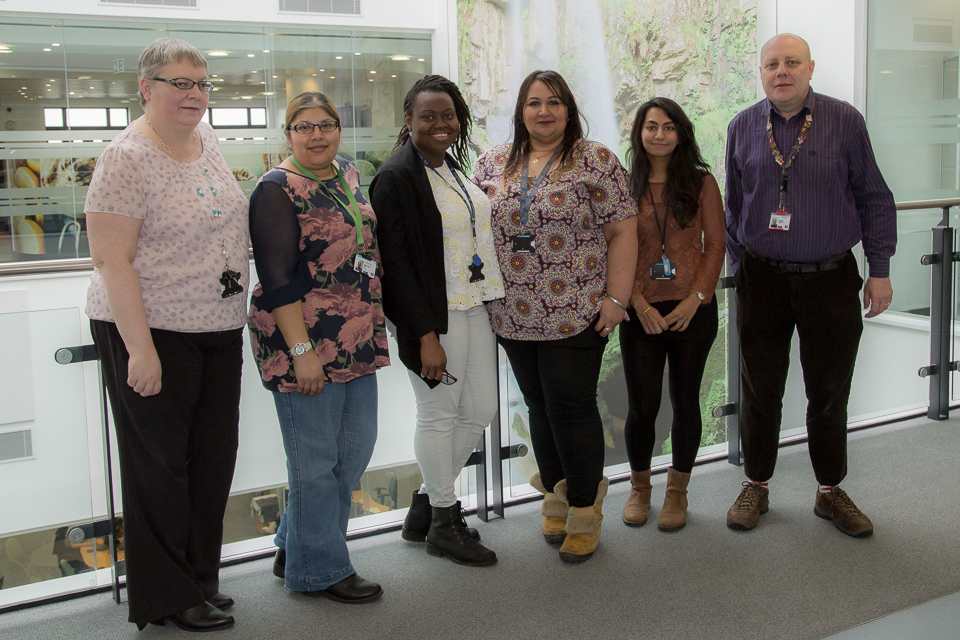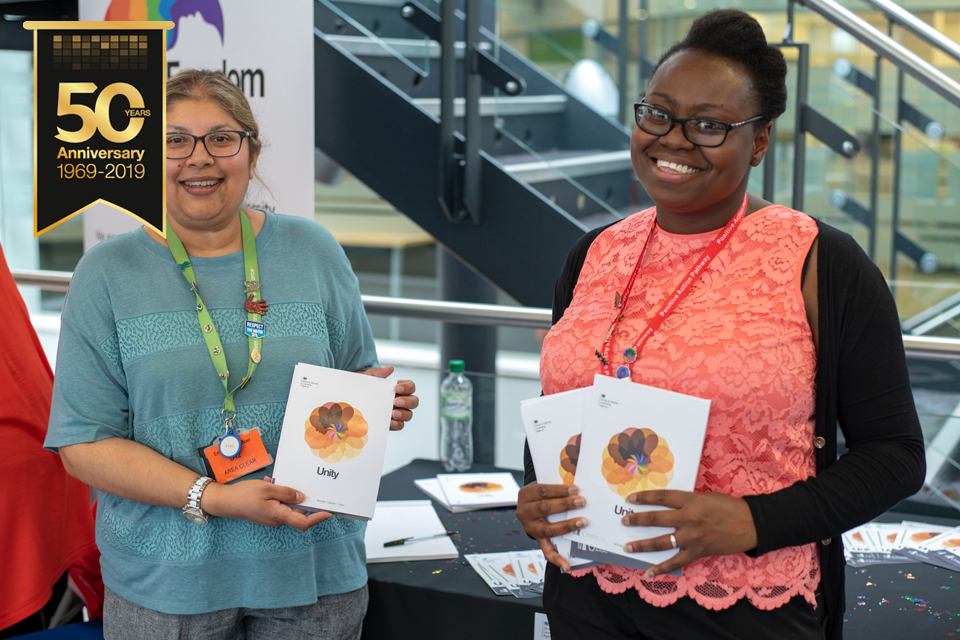Can I just start by thanking each one of you for taking some time out to join us at this virtual summit today.
Because as employers you hold one of the keys to turning offenders lives around.
The work that you can offer them really, really matters.
In fact, we know that if an offender has a job within 6 months of release, they are up to nine percentage points less likely to reoffend.
So, getting a job; getting into employment is absolutely crucial.
I’m not saying it’s the only thing that matters – there will be other obstacles they’ll need to overcome first. Such as beating any addictions they might have.
Getting the skills to get that job when they’re released.
Making sure that they’ve got a stable home to go to.
And maintaining contact with friends and family, so that they’re supported.
So, we understand that it’s all part of a broader strategy and there’s work going on right across government to address those other crucial factors.
But what you do – and what we can do together –really matters.
By partnering with you, we can support offenders to find the jobs that are critical to helping offenders go straight.
And that success can obviously benefit all of you because these offenders have a huge amount to offer.
Don’t just take it from me.
Take it from Timpson retailers, who for almost twenty years have been giving jobs to ex-offenders.
And would tell you how motivated those offenders are by getting a second chance – it motivates them and that makes them more reliable, and more trustworthy employees.
So much so that around 1 in 10 of Timpson’s workforce as a whole is an ex-offender.
That’s extraordinary if you think of the scale.
You can also look at Halfords, who find that people recruited from their prison programmes are more likely to stay on with the company for the long-haul.
That makes their training costs more efficient because they’re retaining knowledge and skills that are absolutely crucial for any organisation’s success.
Then of course, I think a lot of people are familiar with the Clink, which trains offenders working daily in prison kitchens, for their restaurants.
Giving them skills so that they can get catering jobs once they’re released.
I remember that the Clink started at just one prison but now operates in eight.
It’s so successful that offenders in the scheme are a third less likely to reoffend.
Just think about that for a moment – a third less likely to reoffend… that’s huge.
I’m absolutely determined to scale up that work, which is why I’m going to make sure the Clink trains offenders in 70 prisons over the next 3 years.
But do you know what, if we’re really going to bear down on crime in our country, when 80% of convicted crime is committed by people who have already had brushes with the law, then I am absolutely convinced that we need to scale up what’s already working with even greater ambition.
And we need to replicate the very best practice – that we’ve seen and some of which I’ve mentioned – right across the prison estate.
Because right now the truth is that just 14% of offenders in our prisons will get jobs within 6 months of their release.
So, we need to be more ambitious, more innovative and I know that we at the Ministry of Justice need to be more flexible.
So, I’m committed to raising our sights, so that we can get as many offenders into jobs and give them the second chance that they need.
So, what is it that we need to do to get to that vision – to realise it; to make it happen?
Well, I’ve spent the last few days talking to employers about how we can step things up.
Both in how we train offenders and give them opportunities to work on temporary release while they are in prison, as well as how we make sure they have jobs to go to once they are released.
Yesterday morning I visited Lyons Haulage down near the south coast – they employ inmates and ex-offenders from Ford Prison and we discussed their impressive plans to expand that scheme even further.
But I also know and want to recognise with all of you today that it’s not all down to employers – there’s work we need to do in the MoJ and in our prisons as well.
According to the New Futures Network, which brokers relationships between prisons and employers, in the first quarter of this year, of all the job vacancies offered to prisoners via prisons just 1 in 5 were accepted by offenders
We’ve got to change that. It’s just not good enough.
We’ve got to get that number up by making sure that every job is available to every prisoner, at least those who are eligible and meet the security requirements – of course that’s important.
I think we can do that by making prison governors lead the charge on the rate of uptake of jobs in their prisons. Giving them the responsibility and ensuring there’s the accountability to go with that.
That doesn’t mean we want to turn prison governors into some kind of recruitment consultants or head-hunters.
But it does mean that they’ve got an essential role in facilitating the relationship – by advertising jobs properly, so that every offender knows what is available, and making sure that inmates are equipped with what they need:
A CV that shows their skills.
Some ID to show they have the right to work.
A bank account so that they can get paid.
That will enable you as employers to access the best people, with the skills and talent that you need. And, of course, it will ensure that offenders have every opportunity to get that job that will help them go straight when they are released.
Now, we know just what is possible from the trailblazers already making it happen.
Like Jo Simms, the governor at High Down Prison, which I visited just last week.
They’ve got a marketing call centre at her prison, which is run by Census Life, giving offenders the chance not just to learn new skills but also to get work experience, so that they can appreciate how it feels to earn a wage – some of them for the first time, and the impact that will have on their relationships with their families and loved ones
What struck me at High Down is how much of the prison’s success is down to the leadership and the attitude Jo has imbued in the prison.
She’s really gone the extra mile to adapt her prison regime, so that it fits with what Census Life need to make the call centre work in practice.
We know that this works best when the relationship between employers and prisons is strong.
So that’s why James Timpson, the pioneer of employing ex-offenders, is now working with us to help prisons understand what businesses need.
James is helping us to set up boards of local employers to come together to link prisons with the business networks in their particular area.
They can also advise and challenge the prison, to make sure its training reflects the skills that those employers are looking for – to make sure the prison is focused on getting people into work.
And we’re getting lots of great advice from entrepreneurs and business people.
Like Rosie Brown, at COOK who chairs the Board at HMP Wandsworth.
And John Murphy of Murphy Construction, who chairs the board at HMP Berwyn.
My ambition, my vision is to see a Board at every resettlement prison in the country as a whole, so that every one of them is partnered with businesses and can understand their specific needs and circumstances.
I guess what I’ m saying is that making all this work, bringing it all together, has to be a team effort from all of us.
So, I want to appeal to all of you as employers, if there’s anything you need in order to make it easier to use offenders to fill shortages in your business: whether it’s to get into prisons – the logistical challenges – whether it’s the training, or whether it’s just to make sure that you can get them into jobs when they are released.
Whatever it is, I want to hear about it – so please just get in touch.
Write to me, call my department.
I assure you that we mean business.
We really want to scale up, we really want to make this vision a reality.
And I promise you that I – or one of my fantastic ministerial team – will take the time to listen to you and to find out what we can do to improve the relationship between you and the prisons you’re looking at or thinking of working with.
And on top of that I want to talk to and reach out to our governors, I want to urge you to look at what governors like Jo Simms at High Down are doing.
Look at what Andrew Davey is doing at Ford Prison – with the Lyons Haulage scheme that I mentioned before.
And really what I want is all governors to look at that best practice already happening in the system and how it could help their prisons and their prisoners – to think again about what might be holding them back from making the right links with employers’ needs and they can really help to turn offenders’ lives around.
I urge every governor in the prison system to step it up a gear – to get as many offenders into work 6 months after release as possible, to level up by giving each offender the second chance everyone deserves.
So that we can bring down stubbornly high rates of reoffending, beat crime and build back better – both for the sake of a safer country and a stronger economy.
Thank you so much everyone for joining us today.


